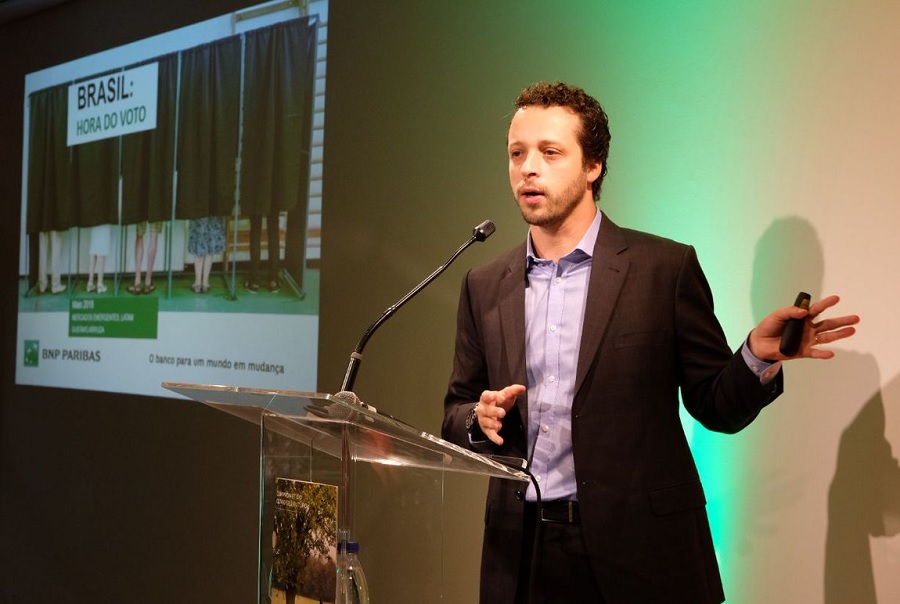RIO DE JANEIRO, BRAZIL – BNP Paribas’ head of research for Latin America Gustavo Arruda is displeased with Central Bank president Roberto Campos Neto’s indication that the monetary authority will not react to each high frequency data release.
According to Arruda, in the September 21 meeting, the Central Bank should raise the basic interest rate by 1.5 percentage points, taking the SELIC from 5.25% to 6.75% per year, something entirely ruled out by Campos Neto’s last statement.
The economist says there is a combination of forces that prevents inflation from converging to lower levels.

“Inflation is de-anchoring and, when this happens, more and more people look at inflation in the past and pay less attention to the future goal. The diffusion of inflation today is very close to periods prior to president Dilma Rousseff’s impeachment,” he says.
Arruda projects that the National Broad Consumer Price Index (IPCA) will stand at 4.5% next year after closing 2021 at 9%. He says BNP is less confident than other banks and brokerages about electric power prices’ decompression helping inflation from 2022.
“We will spend a long time trying to restore the level of reservoirs, which will only be achieved if the government keeps the more expensive thermal power plants running for longer,” he points out.
He also says he is concerned about inflationary inertia. “The service sector is lagging too much. This year health plans had negative readjustments and education also slowed down price increases,” he says.
Arruda wonders why the Central Bank wouldn’t tighten interest rates faster with the national monetary policy still in the expansionist field (SELIC below 6.5% a year). “For now, we will only reach the neutral point of monetary policy. The tightening cycle is fast by historical standards, but only because it started from a very low level.”
The economist believes that if the cycle takes time to lower expectations, Brazil may once again see long-term inflation projections moving towards 5%, in the opposite direction of the course started by the Temer government.
“The delay in bringing the SELIC into the contractionist field may hinder things, because when we linger and fail to do what is needed right away, we have to do it later. The action needed to bring inflation closer to the target is quite substantial,” he argues.
BNP projects that the basic interest rate will need to be raised to 10% a year in 2022 for inflation to approach the Central Bank’s target, currently at 3.75% for 2021.
ECONOMY HELPED FROM ABROAD
Despite inflation concerns, Arruda believes that the global economy will continue to recover in 2022 and that, with the trillion-dollar infrastructure package from President Biden’s administration in the United States, commodity prices should stay on an upward trajectory despite China’s regulatory pressures.
“Brazil’s growth by structural factors has mainly come from commodity prices, with some monetary boost and very little fiscal pull. Vaccination is proceeding well, the risk we had 6 months ago of late deliveries and delays in immunization is no longer there,” he says.
In Brazil, the economist expects the payment of court-ordered federal debts to be left out of the spending cap, which would not be a problem because the purpose of the cap rule is to force the government to think about their public policies since 2016, while court-ordered debts are the result of debts incurred by the government many years ago.
Another risk being monitored by BNP is the water crisis, with increasingly worrisome data. “In a more extreme scenario, we can reach a GDP [Gross Domestic Product] close to zero next year. It’s a potential impact that is difficult to measure,” he adds.
BNP expects Brazilian GDP to grow 5% in 2021 and 1.5% in 2022. The latest projection was for 5.5% growth in 2021 and 3% in 2022.

